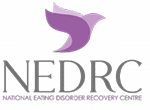Having issues with eating is tough and supporting someone who has eating difficulties comes with its own struggles – here are some strategies which might help you.
1. Identify warning signs
This can be tough to do, there are many eating disorders with different tell tale signs and it can be tricky to identify. However, if you are worried about a loved one then trust your instincts.
2. Don’t believe the eating disorder myths
There are so many myths about eating disorders and difficulties. Try not to focus on these myths as they can be inaccurate, for example, not all people struggling with food are very thin.
3. Be gentle
You may feel sad, angry, frustrated, frightened, confused or all of the above: these feelings can translate into forceful communication with your loved one. You might want to ‘shake some sense’ into them, however, this could cause your loved one withdraw further. Being gentle, kind and understanding will go a long way.
4. Understand that you cannot shame, argue, bully or bargain with them to change their behaviour
Acceptance is the first step, for you and them, your loved one has eating difficulties which are damaging their health and this is scary. Your first response may be to do everything you can to try and persuade them to change their behaviour but this will not work and in many cases it will aggravate the issue and possibly damage your relationship with them.
It is better to support and facilitate your loved one in making positive and healthy decisions.
5. Encourage them to get support
Similar to the above, you cannot force your loved one to seek help for their eating difficulties (apart from extreme circumstances). We recommend that you are open with them and calmly discuss the options for recovery and support that are available to them and ask what resources they would consider using.
6. Look after yourself
Make sure that you are taking care of yourself! This may involve seeking support for yourself or taking time alone.
You can only help someone else when you are looking after your own energy levels and health.
7. Acknowledge that relapses happen
Sadly, eating difficulties can be a life long battle for the sufferer. Relapses happen, particularly when life is stressful. Be mindful of this and encourage your loved one to speak with you if they feel like they may be sliding.
8. Encourage them to express how they feel
Communication is important. Eating difficulties are often very secretive and sufferers may try and hide their struggle from you. Try and encourage open and honest communication, often this is done by demonstrating this yourself. Expression can come in many forms and they may find it easier to use art or music rather than talking to express how they are feeling.
9. Be patient
There is no easy fix and please be patient with your loved one. Eating difficulties and recovery are unique experiences and for some, recovery will be quick and for others, it will be long and winding; for all it is tough.
If you are supporting someone or if you need support then please contact us!

